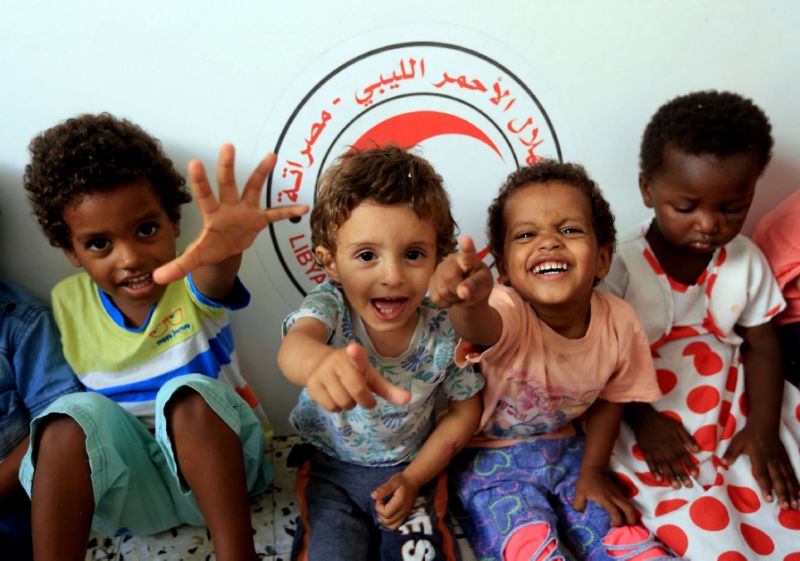Traumatized by war, their extremist parents either killed or missing, 28 children have found solace in each other at a Red Crescent center in Libya’s third city Misrata, said an Agence France Presse report on Friday.
Whether they’re jumping up and down on mattresses or playing in the yard, the boys and girls stick together, like siblings, the older ones looking out for the little ones.
Last December, fighters loyal to Libya’s UN-backed Government of National Accord, many of them from Misrata, prised the Mediterranean coastal city of Sirte out of the grasp of the ISIS terrorist group after several months of battle.
Children of the defeated extremists were left in a state of physical and psychological trauma, Red Crescent spokesman Ali al-Ghwell told AFP during a tour of their camp in Misrata, half-way between Sirte and the capital Tripoli.
They had survived months of food, water and medical shortages on top of constant bombardment that had left them jumpy at the slightest noise.
Some emerged with injuries to the head, stomach or limbs.
Mohamed, a slight boy of five, had to have his right arm amputated, compounding the misery and his sense of isolation and disorientation.
Ali Mohamed Ahmad, a Red Crescent volunteer, recalls how he had to win over the boy with patience and attention before a smile finally returned to his face.
“I tried all the time to communicate and play with him for him to learn to have confidence in me,” said the volunteer in his early 20s.
Now, seven months on from the rescue of 52 children aged between five days and nine years from the ruins of Sirte, Mohamed was seen running and shouting with his new extended “family” before throwing himself into Mohamed’s arms.
Those with at least one Libyan parent have been handed over to family members living in the country. For children of foreign extremists, the situation is more complicated.
In June, eight Sudanese children, including a one-year-old baby, were repatriated to Khartoum.
Tunisia and Egypt have so far failed to respond to Libyan Red Crescent requests for assistance with around 15 children of their citizens left without guardians.
“I hope they’ll be able to go back to their countries one day and reunite with family members,” said Ahmad, the volunteer.
Until that time, the Red Crescent says it is doing its best to provide the children with an oasis of calm and stability, away from the chaos of Libya where rival authorities and a myriad of militias vie for dominance.
It provides the extremists’ offspring with professional medical and psychological care. And “we’re doing our best to find a prosthetic arm for Mohamed”, said his carer Ghwell.
